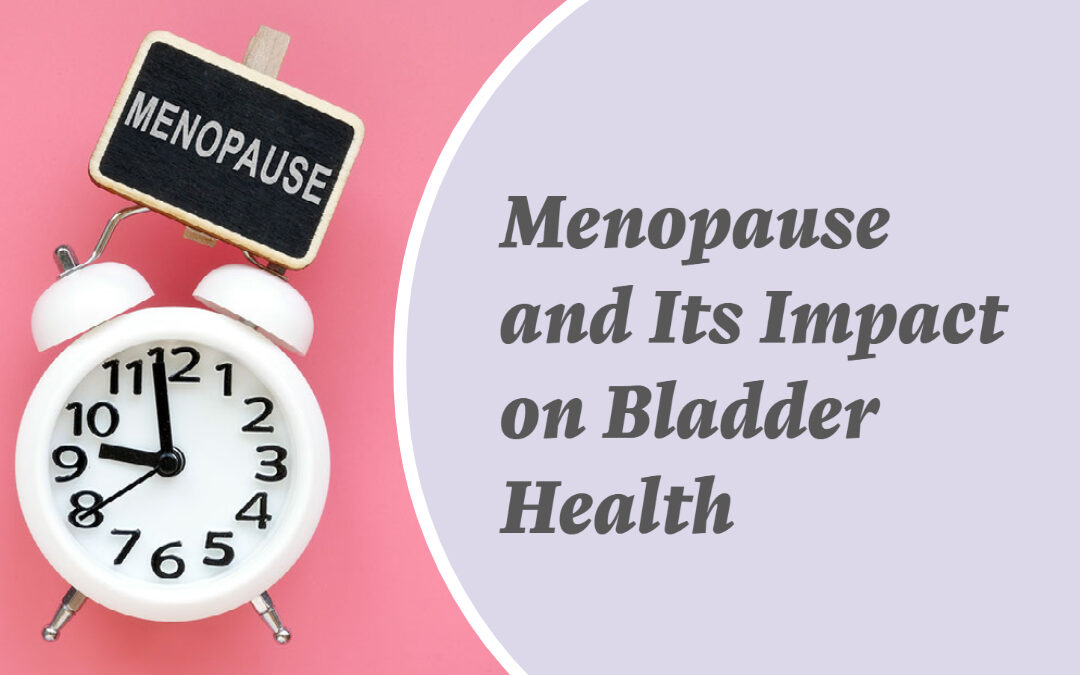Menopause is a natural phase in a woman’s life that marks the end of her reproductive years. While it brings about various changes in the body, one aspect that is often overlooked is its impact on bladder health. Menopause can significantly affect the bladder and urinary system, leading to various challenges that many women may face. In this blog, we will explore the relationship between menopause and bladder health, understand the common issues, and discover ways to manage and maintain optimal bladder health during this transitional period.
Understanding Menopause and Its Effects
Menopause typically occurs around the age of 45 to 55 and is characterized by a decline in estrogen and progesterone production. These hormonal changes bring about a range of physical and emotional shifts, including hot flashes, night sweats, mood swings, and changes in the urinary system.
Bladder Health Challenges During Menopause
- Urinary Incontinence:
Menopause can increase the risk of urinary incontinence, which is the unintentional loss of urine. This happens due to the weakening of pelvic floor muscles and tissues that support the bladder and urethra. Stress incontinence, where urine leaks with pressure on the bladder (e.g., sneezing or laughing), and urge incontinence, characterized by a sudden and intense urge to urinate, are common types experienced during menopause.
- Urinary Tract Infections (UTI):
Declining estrogen levels can cause changes in the urinary tract, making it more susceptible to infections. UTIs can cause discomfort, frequent urination, and pain, affecting the overall quality of life during menopause.
- Overactive Bladder (OAB):
Menopause can trigger an overactive bladder, causing frequent and urgent urination. This can disrupt daily activities and lead to increased stress and anxiety.
Managing Bladder Health during Menopause
- Pelvic Floor Exercises: Strengthening the pelvic floor muscles through Kegel exercises can help alleviate stress incontinence and improve bladder control.
- Stay Hydrated: Adequate hydration is essential for bladder health, but avoid excessive caffeine and alcohol, as they can irritate the bladder.
- Maintain a Healthy Diet: Eat a balanced diet rich in fiber to prevent constipation, which can exacerbate bladder issues.
- Quit Smoking: Smoking can irritate the bladder and worsen incontinence symptoms. Quitting smoking can improve overall bladder health.
- Bladder Diary: Keeping a bladder diary can help identify patterns and triggers for incontinence, assisting in better management.
- Seek Professional Help: If you experience bothersome bladder issues during menopause, consult a healthcare professional specializing in women’s health or urology. They can provide personalized advice and treatment options.
Menopause is a transformative phase in a woman’s life, and understanding its effects on bladder health is crucial for overall well-being. By being aware of the potential challenges and adopting proactive measures to manage bladder health, women can navigate through menopause with greater confidence and comfort. Remember, seeking support and professional guidance can make a significant difference in maintaining optimal bladder health during this transitional period. Embracing self-care and adopting healthy lifestyle habits will empower women to embrace this new phase of life with grace and vitality.
Get a Good Night Sleep with UriCap Female Urine Collection Device for Women
UriCap Female is an external, noninvasive urine collection device designed to fit the female anatomy around the urethra, compatible with standard urine drainage bags. Helping to prevent urine contact with the skin, a common cause of skin irritation, UriCap is especially useful for patients who suffer from urinary incontinence at night or while bedridden. Call our Care Team at (888)-731-8136 for more information.

